What is the PC bottleneck phenomenon? How to prepare?
Bottlenecking is a term that everyone in the computer customization industry is using these days, but most people don't understand what it means. What does bottleneck mean? How does it affect you? How to fix this phenomenon?
These are all good questions and today's article will help you understand bottlenecks and find ways to fix the problem on your PC.
What is a bottleneck?
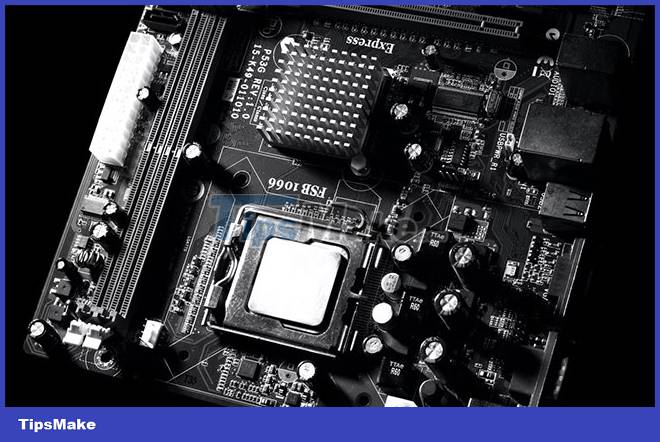
For PCs, a bottleneck refers to a component that limits processing power or graphics performance. Bottlenecking often occurs due to a difference in the maximum capabilities of two components, where the maximum capacity of one component exceeds the other, causing a bottleneck effect in which performance suffers. readjust.
You can imagine this as having a lot of water trying to escape from the bottle. If the neck of the bottle is too narrow, water cannot escape from the bottle. However, if the bottle neck has a larger width, the water can drain out quickly, which is what you are after. This metaphor can be compared to parts in a computer, where if one part cannot "flow" quickly to another part, you will experience this bottleneck effect.
PC bottlenecks are not necessarily caused by the brand, age or quality of the components, but rather by how their performance is related to other components. This is not just something that can happen in high-end systems. It can happen in lower budget devices if not carefully planned.
4 examples of PC bottlenecks

One of the most common bottlenecks you will see is when gaming on PC and involves the CPU (central processing unit).
1. CPU/GPU bottleneck
The CPU is responsible for performing all the important computational operations and sending rendering instructions to the graphics processing unit (GPU). Often, CPUs are too weak to keep up with powerful graphics cards on poorly designed devices, severely limiting the number of frames per second.
You can use 100% of your GPU if your CPU is more powerful, but it will lose idling time due to this particular bottleneck.
2. GPU/CPU bottleneck
Essentially, if you have a strong CPU but a weaker GPU, your CPU will process the game faster than the GPU can render it. However, while this sounds bad, it actually means that your computer will render 100% of the frames it can do, which is exactly what you want when gaming. This is why it's always helpful to consult a gaming PC building guide before getting started!
3. Hard drive bottleneck
An example of a bottleneck involves storage. If you're using an older device but have upgraded the CPU, GPU, and RAM, the next thing to upgrade is the old hard drive (HDD). Older hard drives take longer to load or stutter when your program tries to get information from the hard drive - you can replace the old drive with a faster SSD.
4. Screen bottleneck
It's not just the internal components that cause bottlenecks. Let's say you own a top-of-the-line Nvidia RTX 3080 but you're still gaming on a 60Hz, 1080p display. While your video output will still be fine and you can game at ultra settings, you're not getting the most out of your hardware, which is another type of bottleneck.
How to check PC bottlenecks using a calculator
If you are sure that your PC is not working as it should, then you may have encountered a system bottleneck. However, figuring out how your PC components work together and which ones aren't working well isn't as simple as opening your PC case and fiddling with the details inside. There are several ways you can check for bottlenecks in your PC components!
There are a number of online bottleneck calculators you can use to figure out what's holding back your machine. One option is CPU Agent's FPS and Bottleneck Calculator for this example. It's a simple process; go to the website, enter your CPU, GPU and RAM information, then press the Calculate FPS and Bottleneck button . Not sure about your PC specifications? There are a few ways you can quickly check your PC's specs, then fill out the form.
The second option is PC Builds Bottleneck Calculator, which follows the same process with some minor differences. Specifically, PC Builds does not ask for RAM information but does ask for your intended use of the system, which is used to figure out where your problem lies. For example, as you can see from the images below, the GTX 1070 GPU is bottlenecking the much more powerful AMD Ryzen 7 5800X CPU, which suggests that a new GPU is needed.
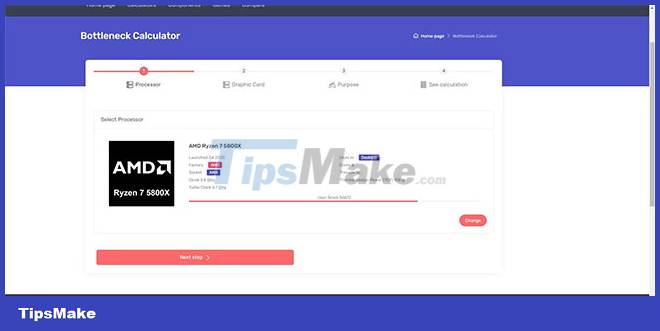
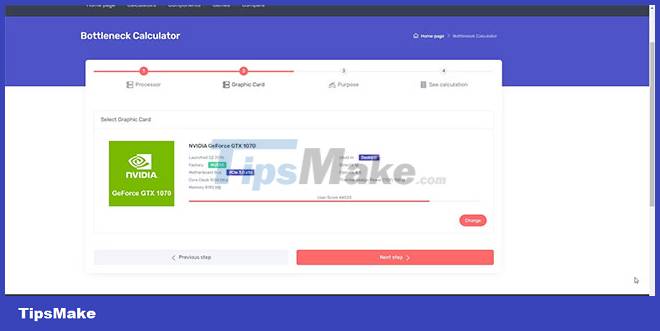
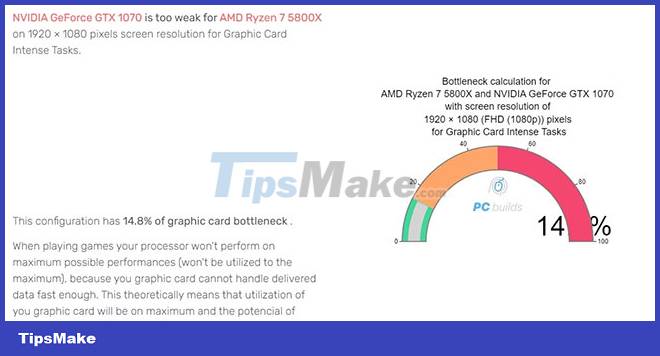
How to fix bottlenecks on PC?
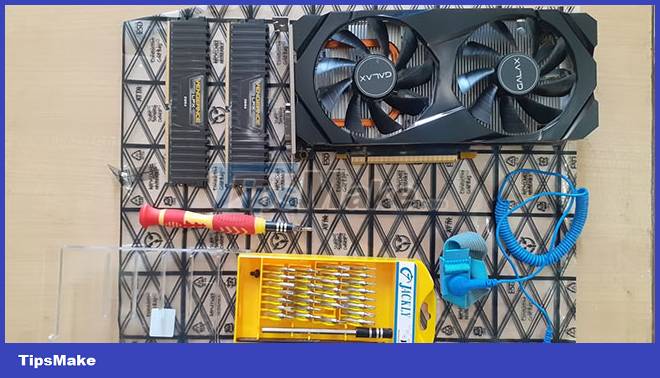
The simplest solution to the bottleneck, no matter what you're looking for in a customizable PC, is to make sure you choose a balanced combination of components.
Whatever hardware you choose, planning will prevent hardware bottlenecks and deliver optimal performance across the board. Instead of buying individual parts that are too strong, it is much better to buy parts that are well balanced together. Otherwise, your system will lag.
Sites like PCPartPicker are great for planning a new PC build, as they let you hypothetically sort through the bits, see what works together and what doesn't. Using sites like this, you can create a system that always works, no matter what programs or games you run. It's important to remember that you can always upgrade later and should optimize now before upgrading in the future.
However, the only problem with sites like PCPartPicker is that while they show you compatible parts, they do not illustrate problems that may arise later. So, the best way to avoid a bottleneck in building a new system is to put your potential components into one of the aforementioned online testing tools and check the results.
And, of course, building a new PC isn't the only way to fix the bottleneck. Testing tools will help identify one or more areas of your system that need upgrading, so test them before building a completely new system.
You should read it
- ★ Export and Import IPSec Policy
- ★ How to Use Fraps to Take a Screen Capture
- ★ Intel released the 10th generation H series CPUs for laptops, promising outstanding performance
- ★ How to paste data into non-hidden cells, ignoring hidden cells
- ★ Microsoft patch prevents Windows 10 1903 and 1090 users from updating to newer versions